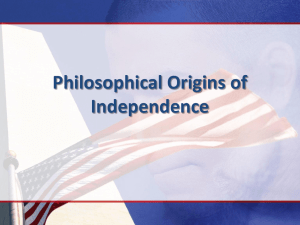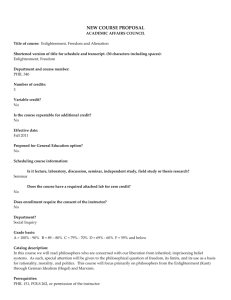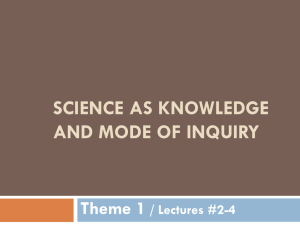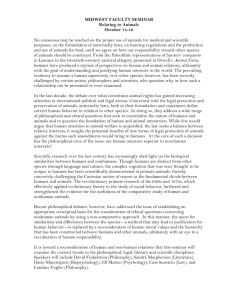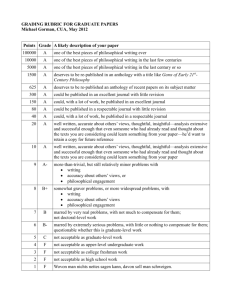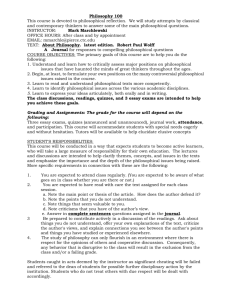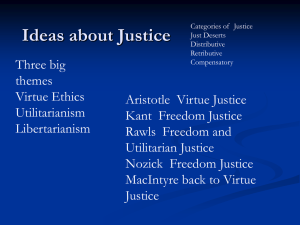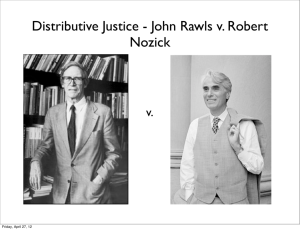Final Exam - Open Yale Courses
advertisement
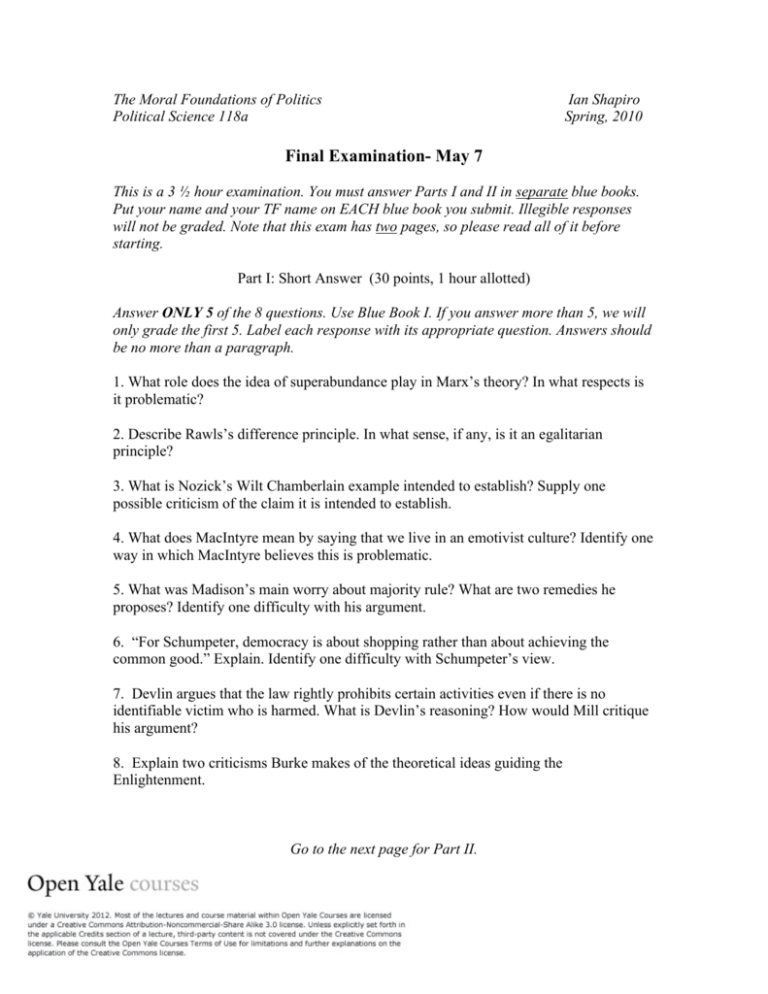
The Moral Foundations of Politics Political Science 118a Ian Shapiro Spring, 2010 Final Examination- May 7 This is a 3 ! hour examination. You must answer Parts I and II in separate blue books. Put your name and your TF name on EACH blue book you submit. Illegible responses will not be graded. Note that this exam has two pages, so please read all of it before starting. Part I: Short Answer (30 points, 1 hour allotted) Answer ONLY 5 of the 8 questions. Use Blue Book I. If you answer more than 5, we will only grade the first 5. Label each response with its appropriate question. Answers should be no more than a paragraph. 1. What role does the idea of superabundance play in Marx’s theory? In what respects is it problematic? 2. Describe Rawls’s difference principle. In what sense, if any, is it an egalitarian principle? 3. What is Nozick’s Wilt Chamberlain example intended to establish? Supply one possible criticism of the claim it is intended to establish. 4. What does MacIntyre mean by saying that we live in an emotivist culture? Identify one way in which MacIntyre believes this is problematic. 5. What was Madison’s main worry about majority rule? What are two remedies he proposes? Identify one difficulty with his argument. 6. “For Schumpeter, democracy is about shopping rather than about achieving the common good.” Explain. Identify one difficulty with Schumpeter’s view. 7. Devlin argues that the law rightly prohibits certain activities even if there is no identifiable victim who is harmed. What is Devlin’s reasoning? How would Mill critique his argument? 8. Explain two criticisms Burke makes of the theoretical ideas guiding the Enlightenment. Go to the next page for Part II. Part II: Essay (70 points, 2 hours allotted) Answer ONLY 1 of the following questions. Use Blue Book II. Be sure to state clearly which question you are answering. You may use additional blue books, but properly label them. 1. “Every political theory rests on what might be described as a philosophical psychology: a set of assumptions about what human beings want from life and from one another, and about what moves them to action. In short, every political theory rests on a theory of human nature. It follows that no political theory can be more plausible than the philosophical psychology on which it rests.” Describe the philosophical psychologies of at least five theorists we have considered in this course and in each case explain the links between the philosophical psychology and the political theory. Which philosophical psychology do you find the most appealing, and why? What are the weaknesses of the view you like best, and how would you respond to someone who pointed them out? 2. “Every Enlightenment theory of politics involves commitments to the ideas that politics can be reduced to a science and that the greatest human good is freedom, as guaranteed by preserving individual rights. These twin Enlightenment commitments live in considerable tension with one another, but the best we can do is manage the tension rather than resolve it or abandon either of the values that gives rise to it.” Discuss with reference to at least five authors considered in the course. Which approach to managing the tension is the most effective, and why? What disadvantages attend your preferred approach, and how should they be dealt with? 3. “The idea that the work one does should determine what one is entitled to in life has the paradoxical feature that almost no one is willing to abandon it, yet it turns out on close inspection to be surprisingly difficult to justify.” Discuss with reference to Locke, Marx, Nozick, Rawls, Burke, and MacIntyre. Who deals with the tensions resulting from the paradox most effectively? Why? End of examination
